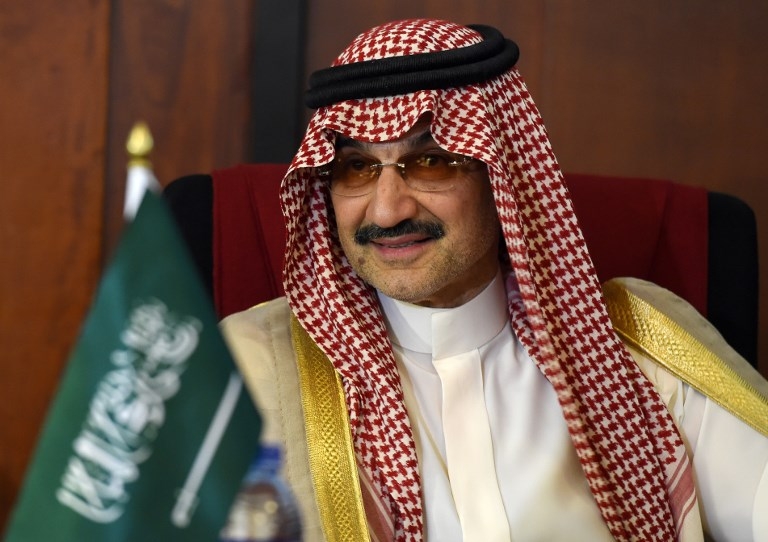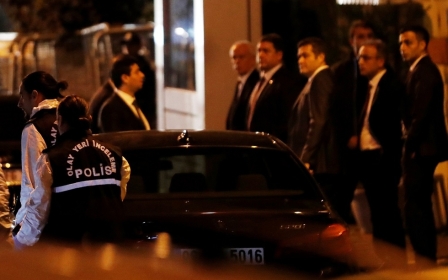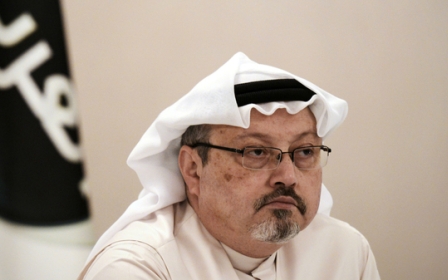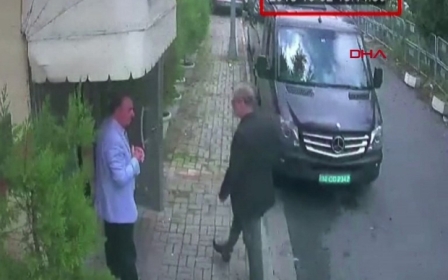Arabic press review: Bin Talal tweets support for Saudi - but leaves out MBS

'God, the king, and then the homeland'
A tweet from Saudi Prince Alwaleed bin Talal, the wealthiest businessman in the Arab world and a friend of missing Saudi journalist Jamal Khashoggi, has sparked controversy among users on social media.
Translation: "God, then the king and then the homeland"
Bin Talal's tweet also included a hashtag used by a number of Saudis on social media in response to the wave of outrage regarding the Kashoggi case. The hashtag, a traditional Saudi saying, roughly translates as "anybody who deals with us as an enemy, we will fight and defeat him".
Although Bin Talal never mentions Khashoggi, he also avoids referring to Saudi Crown Prince Mohammed bin Salman, which some commentators considered a key message conveyed by the prince.
Translation: "Homeland is more important than all rulers"
Translation: "God, then homeland, then the king . . . countries are more important than the king or any people"
In 2010, Bin Talal asked Khashoggi to head up his new 24-hour news channel, Al-Arab, which was meant to provide independent coverage of the region. But 11 hours after the channel launched in 2015, the Bahraini government abruptly shut it down.
Bin Talal was one of around 350 Saudi princes and businessmen rounded up last November and held in the Ritz-Carlton in Riyadh as part of what Saudi authorities presented as a crackdown on corruption.
Most of those held, including Bin Talal, have been released after reportedly agreeing to financial settlements with the kingdom.
Media 'allegiances' should be monitored, says Emirati billionaire
Prominent Emirati billionaire Khalaf al-Habtoor, who is close to Abu Dhabi authorities, has called for all journalists and outlets in the region to be monitored to assure their loyalty to the countries they cover, according to a video posted on his Twitter account.
Habtoor said that Gulf Cooperation Council (GCC) member states should observe media workers and platform managers, including TV stations and newspapers.
"Abu Dhabi and the governments of the GCC must form a committee to monitor those responsible for media outlets. The authorities need to identify their allegiances, which side they are taking and whether they are truly loyal or they are just taking advantage of us," he said.
"If they are only achieving some sort of personal interest, then we surely do not need them.”
Habtoor clarified that he meant that both foreign and local journalists and outlets should be scrutinised.
"Courtesies have no place in this situation, and those who do not fully support us are asked to leave," he said.
Five Algerian generals to face corruption trial
An Algerian military court has ordered five generals to be detained ahead of their trial on charges of corruption, according to the Saudi newspaper Asharq al-Awsat.
The five generals were among 20 officers, most of whom are generals, who were sacked by President Abdelaziz Bouteflika over the past two months.
Sources in Algeria told the Saudi newspaper that the five officers were accused of "unjust enrichment and exploitation of their high position," and noted that a travel ban was issued against the five officers in September.
* Arabic press review is a digest of reports that are not independently verified as accurate by Middle East Eye.
New MEE newsletter: Jerusalem Dispatch
Sign up to get the latest insights and analysis on Israel-Palestine, alongside Turkey Unpacked and other MEE newsletters
Middle East Eye delivers independent and unrivalled coverage and analysis of the Middle East, North Africa and beyond. To learn more about republishing this content and the associated fees, please fill out this form. More about MEE can be found here.




